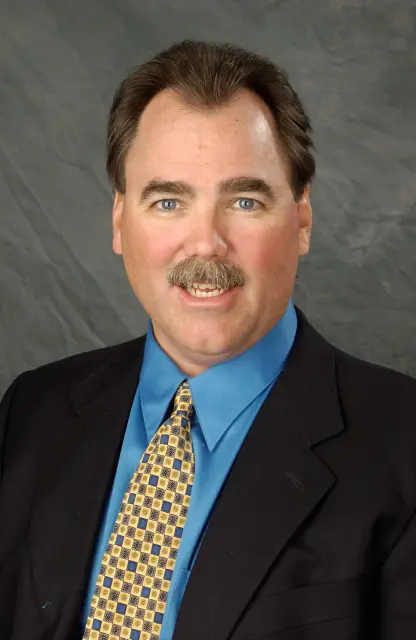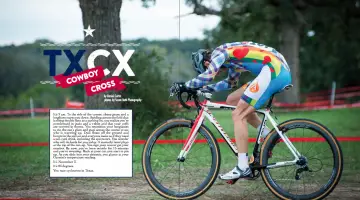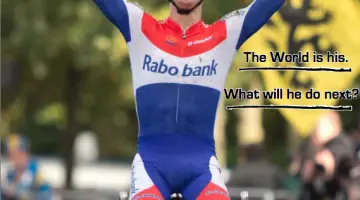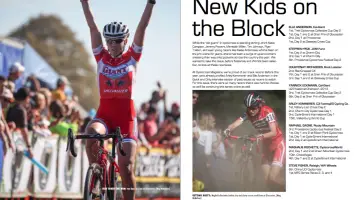This article originally appeared in Issue 23 of Cyclocross Magazine and contains our exclusive interview with the new President of the UCI Cyclocross Commission. To read the full story, make sure you get an archived copy or an All-Access Digital Subscription by visiting our subscription site.
Professional cyclocross has a new name in the mix when it comes to the advancement of the sport: Mike Plant. Plant was selected by the new International Cycling Union (UCI) President Brian Cookson and the UCI Management Committee, as the new President of the UCI Cyclocross Commission. However, he’s no newbie: His day job is serving as an Executive Vice President of Business Operations for the Atlanta Braves Major League Baseball team, and he currently serves as president of the US Speedskating federation’s board of directors. Plant, an important ally in Cookson’s election
The former speedskater has also served as a member of the board of directors of the Atlanta Committee for the 1996 Olympic Games and president of the Goodwill Games. The new UCI cyclocross leader’s experience isn’t limited to wheels, skates, bats and balls, as he also has served as executive director of the U.S. Canoe and Kayak Team.
While Plant could be considered part of the new guard as new UCI president Cookson’s appointee to lead cyclocross, he’s also part of the old guard, having served the last four years on the UCI’s Management Committee. Recently, the American said he was ready to step down if Pat McQuaid was re-elected, and Plant had co-authored a dossier on the former UCI president.
Cyclocross Magazine’s Andrew Yee had the opportunity to chat with Plant about the future of cyclocross in the world, and specifically in the States.
Cyclocross Magazine: You haven’t raced cyclocross yourself, but I’m curious, what was your first interaction with cyclocross?
Mike Plant: It was my first time on the UCI management board back in ’97. I went to one of the World Championships and it’s the first time I had real exposure to it, other than reading about it. I think it has all the elements— great drama, great intrigue, incredible athlete challenges—and it has a lot of potential.
CXM: What will you do this season?
MP: I’m going to Belgium for two consecutive weekends. Once for my first meeting, and the following weekend for the World Cup just before Christmas. In all the years I rode, when I was younger, I never raced cyclocross, just road and track. I think there’s just a ton of upside for ’cross. It has a lot of intrigue, and from the American standpoint, it’s short enough, it’s fast paced, it’s a circuit, it’s got all the speed and drama to it, and I’m just really excited to be a part of it. For my first meeting, I sent out a notice to the group that said, ‘Hey, look, here’s who I am, here’s what I’ve done, here’s what I hope I can bring to the table. We’ve got some work to do, but we’ve got some real opportunity here and I’d like for you to give some thought. Bring three or four practical ideas on how we can improve and augment this sport. For example, don’t say let’s go get 25 million dollars in the next 24 months. Be practical, and I want you to reach a little bit.’ So I’m anxious to have that discussion.
CXM: For the average cyclocrosser, can you explain what the UCI Commission does?
MP: If you look at the UCI from a governing standpoint, it’s the entity that is responsible for overseeing all of the various governing responsibilities of the sport, which includes races, teams, development, the Elite-level World Championships, all the different disciplines… And so they have commissions that are involved and responsible for oversight of the various disciplines. When you look at a racing calendar, the rules and regulations of the sport and discipline, the commission will entertain ways to improve and ways to augment what’s already there.
It covers every aspect of an event: obviously the event structure, the requirements and qualifications to ride at certain levels, and also how you conduct the races, kind of the general oversight like they do for every sport.
CXM: Is the commission’s and your own goal here to focus on cyclocross as a professional and spectator sport as opposed to, let’s say worldwide expansion of participation?
MP: I think you have to do that at first because those two go hand-in-hand eventually. Look at gymnastics, due to the Olympic games: They obviously have an opportunity to create a lot of interest from a lot of young kids who say ‘Hey, that’s what I want to do.’ If you go after creating that visibility and creating that platform, that just lends itself to the opportunity to expand your base and get more participants…You have to obviously make sure that you have captured people’s attention, they think you’re relevant.





























